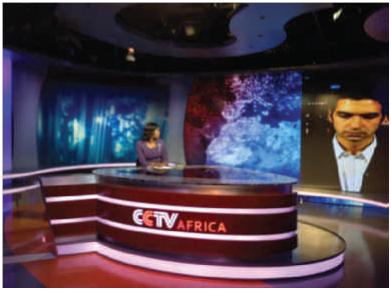
July 13, 2013, by Tony Hong
China’s Media Offensive in Africa
By Dr. Xiaoling Zhang,
Head of Contemporary Chinese Studies at the University of Nottingham Ningbo China.
Associate Professor in Chinese Studies at the University of Nottingham.
China has accorded great importance to strategies of gaining a broader influence to accompany its significantly increased economic engagement with the world. Take Africa, for example. In addition to the setting up of 29 Confucius Institutes and Classrooms in 22 African countries by July 2012, other initiatives there include infrastructural and technical support to the media sector, along with a greatly increased media presence. The involvement of the Chinese media sector in Africa has a history, but this involvement only began its present scale of development in 2006. In that year Xinhua moved its Regional Editorial Office from Paris to Nairobi, a central hub in Africa for China’s ‘going abroad’ media project. The launch in 2006 of the state-run China Radio International (CRI) in Kenya can also be seen in this light. Similarly, CNC World, the English-language TV channel of the Chinese state news agency Xinhua reached cable television audiences in Africa from January 1, 2011.
Xinhua’s launch of mobile news in sub-Saharan Africa in April, 2011 also enabled around 17 million Kenyan mobile subscribers to receive Xinhua’s latest news. More recently, China’s broadcasting giant, China Central Television (CCTV), launched CCTV Africa, a news production centre and studio in Nairobi in January 2012. It provides an hour-long programme, Africa Live, for global CCTV News in English every day, with a 30-minute Talk Africa show every Sunday and a documentary show – Faces of Africa on Mondays. The end of 2012 saw China Daily launches its Africa edition, the first English-language newspaper published in Africa by a Chinese media enterprise.
Hillary Clinton, former US Secretary of State, identified the progressively “crowded field of state financed satellite television news” as a new battlefront. Citing the emergence of international broadcasters Al Jazeera, Russia Today and China Central Television’s global English-language broadcast, Clinton told the Senate Foreign Relations Committee in March that the United States is “engaged in an information war” and stressed that the US is “losing that war.” Indeed the expansion of the Chinese media is especially noticeable at a time when many Western media houses are struggling to survive.
Among many strategies to win African hearts, CCTV Africa has employed over 70 locals (compared to over 40 Chinese employees) to provide more subtle views on African and Africa-related international issues. These locals, working in all sectors of CCTV Africa, bring with them different experiences from previous places of employment, many of them private media companies. They are attracted by the advanced technology of the news centre and the much larger international platform, although they need to constantly negotiate their often western-oriented understandings and practices of journalism. Analysis of the hour-long programme Africa Live, shows that CCTV serves as a platform for re-emphasising China’s critical stand on foreign intervention in African affairs, the need to reform international systems and the promotion of a positive image of China, whilst winning over African audiences from its Western competitors, including CNN and the BBC News. In gearing up for international competition, CCTV Africa often engages in discussions conducted in Talk Africa on otherwise forbidden topics in domestic media such as democracy, revolution, elections, crisis and stability.
On February 6th 2012, CCTV launched its second overseas English news production centre “CCTV America” with a new studio in Washington, DC. Every day the three news production centres – Beijing, Nairobi and Washington DC, have an online meeting in their studios to review the work of the day and set the tone for the next day. These are very interesting developments, inviting research to be carried out on how local audiences perceive this wave of media output and what the consequences are. CCTV, China’s flagship broadcaster, is moving forward briskly in the competition between international state-sponsored broadcasters to win hearts and minds.
No comments yet, fill out a comment to be the first

Leave a Reply